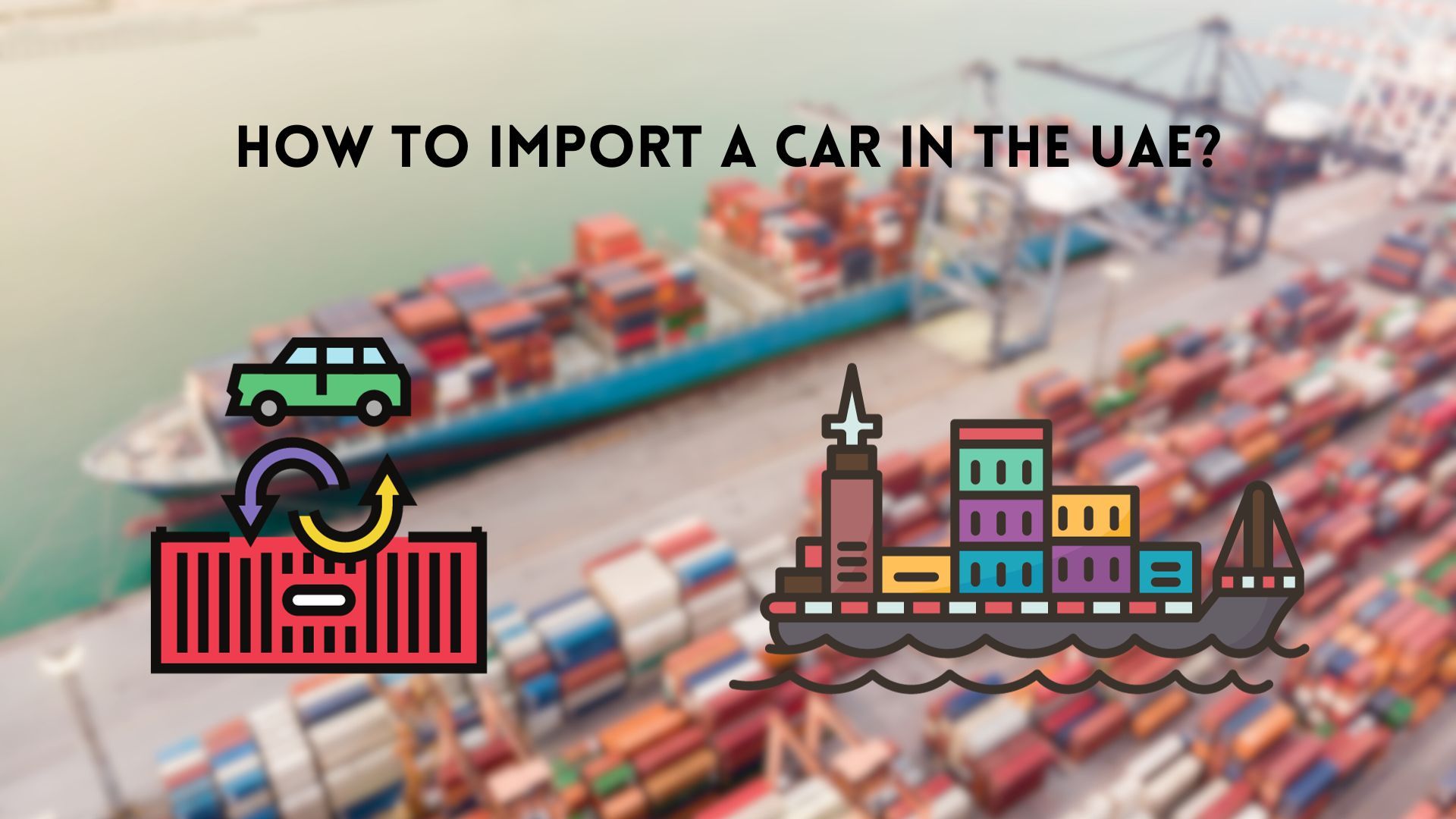Bringing your cherished vehicle to the United Arab Emirates (UAE) can be an exciting endeavour, whether you're a resident planning to move your car or an expatriate wanting to continue driving your vehicle from your home country. However, the process of importing a car into the UAE involves various steps and regulations that must be followed diligently. In this comprehensive guide, we will take you through the process of importing a car into the UAE, ensuring that your beloved vehicle is legally and smoothly on the road.
Understanding the Regulations to Import a Car in the UAE

Before you embark on the journey of importing your car into the UAE, it's essential to understand the regulations that govern this process:
-
Eligibility: You must be a UAE resident or have a valid UAE residence visa to import a car.
-
Vehicle Age: The UAE imposes restrictions on the importation of used vehicles. Generally, cars should not be more than five years old from the date of manufacture.
-
Vehicle Specifications: Your vehicle must comply with UAE specifications and standards, including safety and environmental requirements.
The Importation Process
Now, let's break down the steps to import a car into the UAE:
1. Research and Choose a Shipping Method
Decide whether you want to ship your vehicle by sea or air. Most people opt for sea shipping, which is more cost-effective. Choose a reputable shipping company with experience in handling vehicle imports.
2. Vehicle Inspection and Certification
Before shipping, your vehicle must undergo an inspection and obtain the required certification in your home country. Ensure that your vehicle complies with UAE standards, especially concerning emissions and safety.
3. Hire a Customs Clearing Agent
Upon arrival in the UAE, you will need to hire a customs clearing agent to help you with the importation process. They will handle the necessary paperwork, customs declarations, and clearances on your behalf.
4. Pay Import Duties and Taxes

You will be required to pay import duties and taxes, which can vary depending on the vehicle's value, age, and specifications. Make sure to have the necessary funds ready for this purpose.
5. Pass Vehicle Inspection in the UAE
Once your vehicle arrives in the UAE, it will need to undergo a series of inspections to ensure it meets local standards. These inspections typically include roadworthiness, safety, and emissions tests. If your vehicle passes these tests, you will receive approval to register and drive it in the UAE.
6. Vehicle Registration
Register your vehicle with the relevant UAE authorities. You will need to provide documents such as your passport, residence visa, vehicle ownership papers, and customs clearance documents.

7. Obtain UAE License Plates
After registration, you will receive UAE license plates, allowing you to legally drive your vehicle on UAE roads.
8. Car Insurance
Purchase comprehensive car insurance for your vehicle, as it is mandatory in the UAE.
9. Pay Registration Fees
Pay the required registration fees, which vary depending on the vehicle type and specifications.
10. Renewal and Maintenance
Regularly renew your vehicle's registration and insurance, as well as conducting scheduled maintenance to ensure it remains roadworthy.
Read out Article on Ten Points To Consider Before Buying Import Cars In The UAE
Additional Tips to Import a Car in UAE

-
Hire Professionals: Utilize the services of professionals, including customs clearing agents and inspection centres, to navigate the complex process with ease.
-
Research Costs: Be prepared for the costs involved in importing a car, including customs duties, taxes, and shipping fees.
-
Documentation: Keep all necessary documentation well-organized and readily accessible throughout the process.
-
Resale Value: Consider the resale value of your imported vehicle in the UAE, as some imported models may have a lower resale value compared to locally available options.
Note: Regulations regarding car imports in the UAE may change over time, so it's advisable to consult the UAE's official authorities or seek guidance from a customs clearing agent for the most up-to-date information and requirements.

